Category Archives for "Self Love"
How to love yourself
How to love yourself

Have you come across the term “wounded child healing” and wonder if it is something that you may need?
Well, I’d like to offer a brief description of what I understand “wounded child healing” to be.
[Note: I’m re-publishing this article as it is still relevant till today;-)]
What is Wounded Child Healing
The “wounded child” is an archetype which contains damaged or negative emotional patterns of our youth. It may help to improve your understanding if we can draw reference from the lyrics to the song “Childhood” by Michael Jackson…
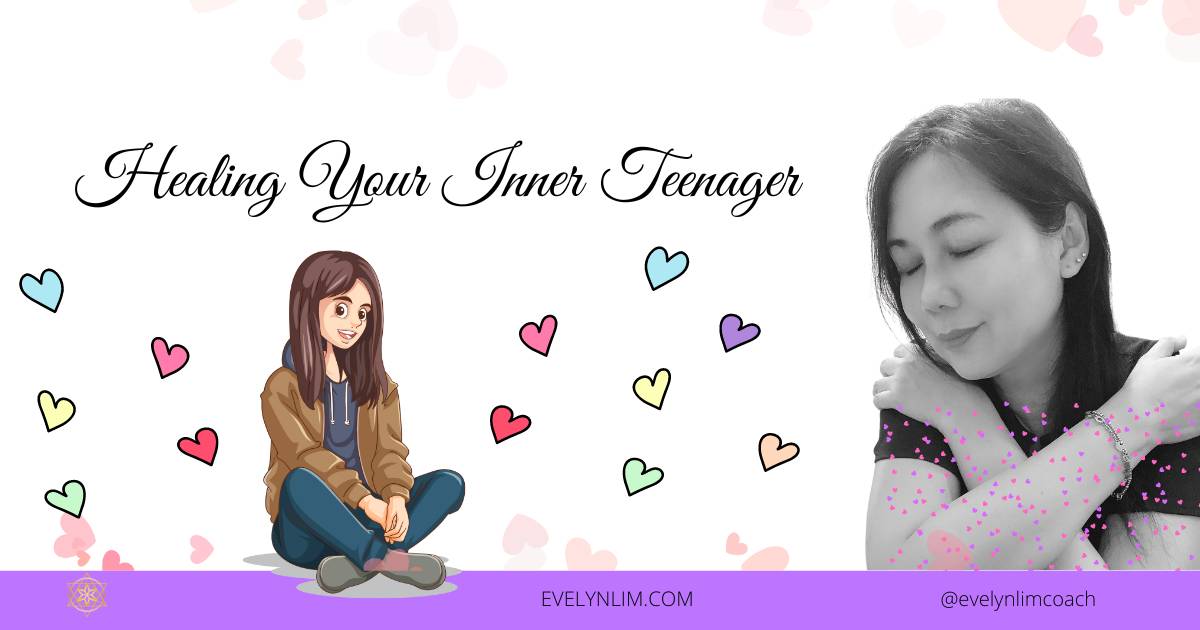
Healing our inner teenager is sometimes overlooked as we often place emphasis on dealing with traumas or events arising from when we were below 7 years old. While the early years are considered to be most crucial for healthy development, doing inner teen work can be just as important. The teenage years are a pivotal period where emotional wounds can take root, shaping our adult lives in profound ways. The following are reasons why doing inner teen work is important…
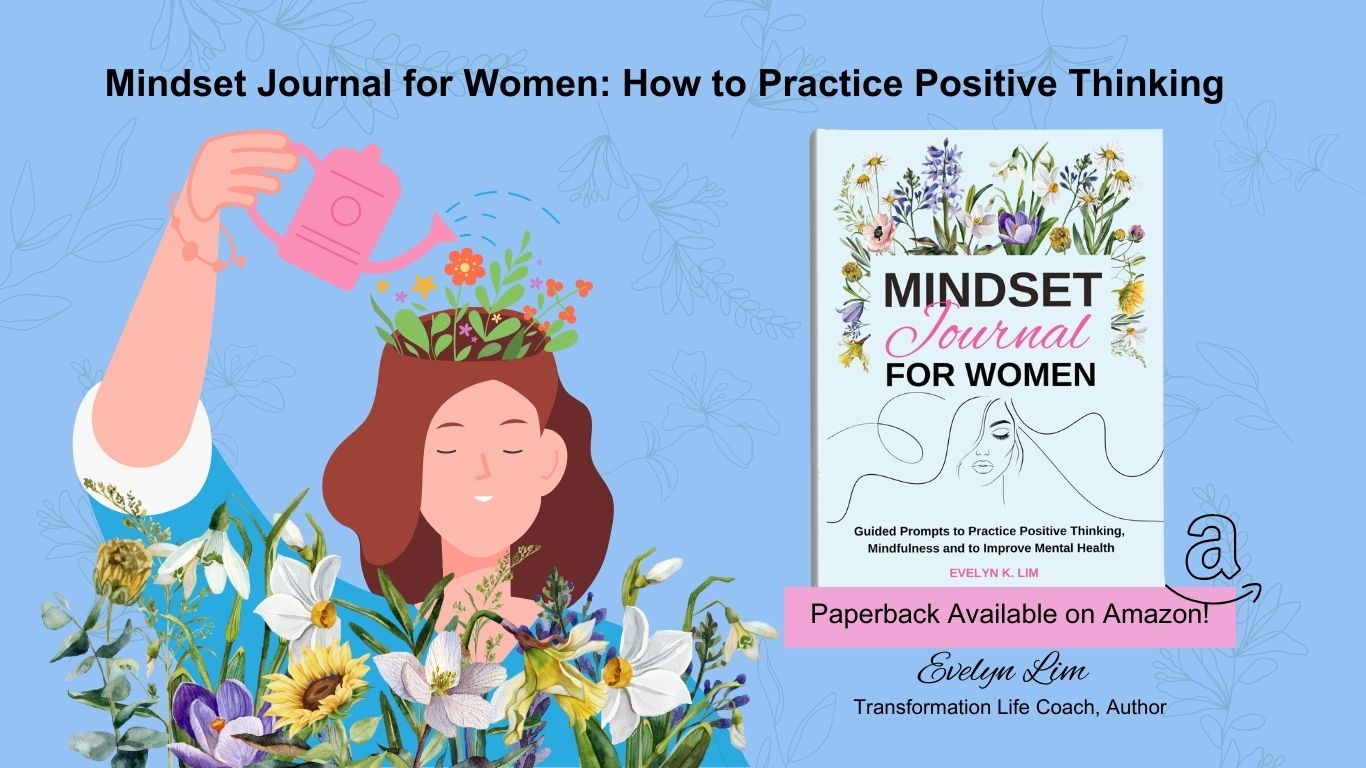
My new book, Mindset Journal for Women, is finally out on Amazon…yay!! It is a journal workbook with prompts to practice positive thinking, mindfulness and to improve mental health. You can find the listing on Amazon here.
For the vast majority of people, nearly 90% of our self-talk is negative. It is reflective of having a negative or limiting mindset. In order to overcome the habitual pattern of negative thinking, we need to consistently work on building a positive mindset. Also, studies show that more women than men go into depression. It is where the Mindset Journal for Women comes in.
The journal book uses the metaphor of your mind being a garden and you as the gardener.
The floral theme in the interior pages acts as a nice reminder and inspiration. Imagine each page as a fertile patch of soil, ready for your seeds of inspiration to take root. With its floral theme, every turn invites you to immerse yourself in planting seeds of positivity.
It’s not just daily pages that I have included. I have also incorporated a mini workbook planner in Section A so that you can be introduced to concepts that would be helpful for building foundation. There are guided prompts designed to spark growth, foster gratitude, and to practice mindfulness. Section B features daily, weekly and monthly journal pages that are helpful for habit tracking, reflection and for reviews.
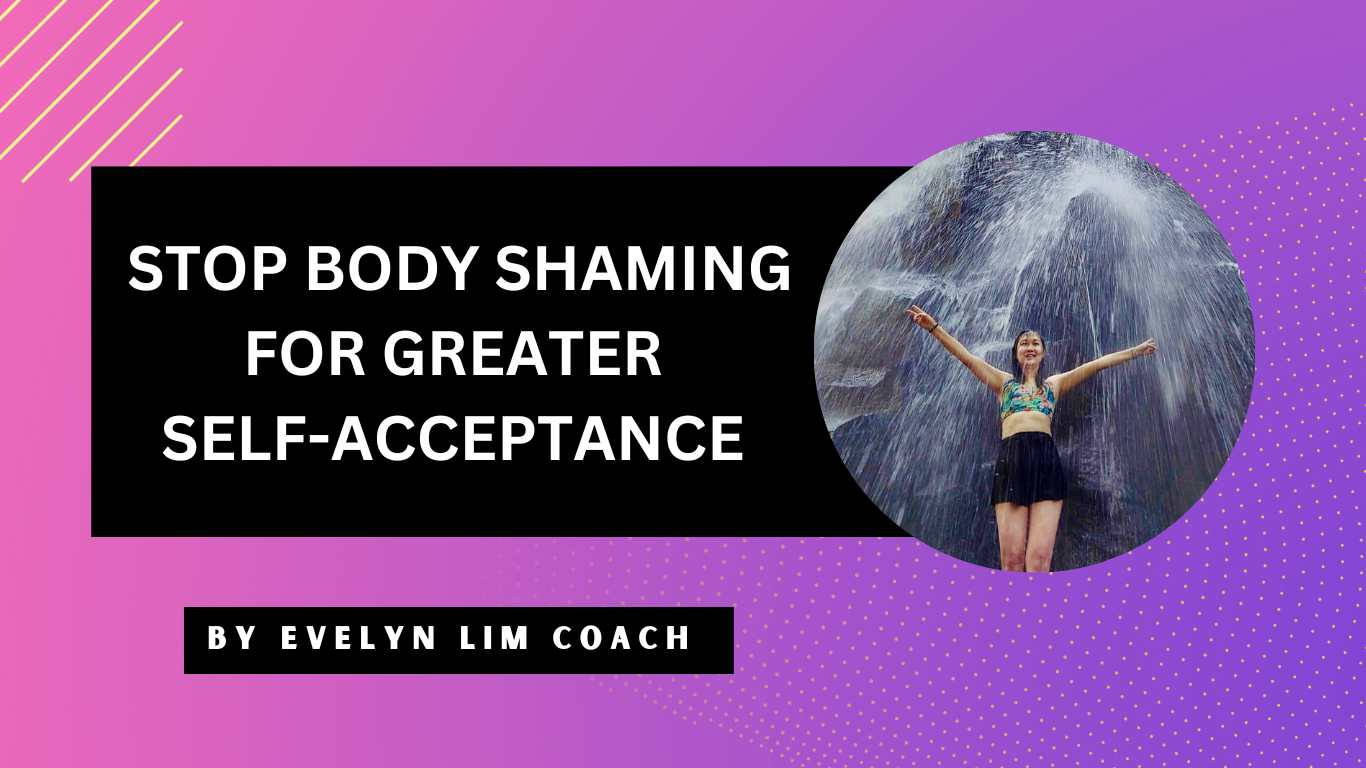
If you are in the habit of shaming your own body, stop.
Shaming your own body because of your physical imperfections can cause you to feel lousy about yourself.
Perhaps you don’t like the way your nose looks, the slant of your eyes, the shape of your face, your freckles, boob size, etc…and the list goes on.
While it may be true that they are not perfect according to some beauty standards, shaming yourself over them is not going to be helpful for your confidence. Continue reading

Practising loving self-acceptance is not something that may come naturally. In fact, it could be a key life lesson that some of us. You may find yourself attracting various experiences that involve this important aspect of what it means to embrace yourself totally.
Many of us long to be accepted for who we are. And so, we go about seeking validation and approval from others. However, the crux is that if we cannot accept ourselves, we cannot expect others to accept us too. Without any self-acceptance, we live in constant fear of being rejected.
“A man cannot be comfortable without his own approval.” – Mark Twain
I find it great to learn from movies too. One of the movies that I watched with my children was Wreck-it Ralph show. Initially, I had found the plot rather slow moving. And so I was not paying full attention to it. But as the movie wore on, I discovered that there were valuable lessons on self-acceptance.
Continue reading
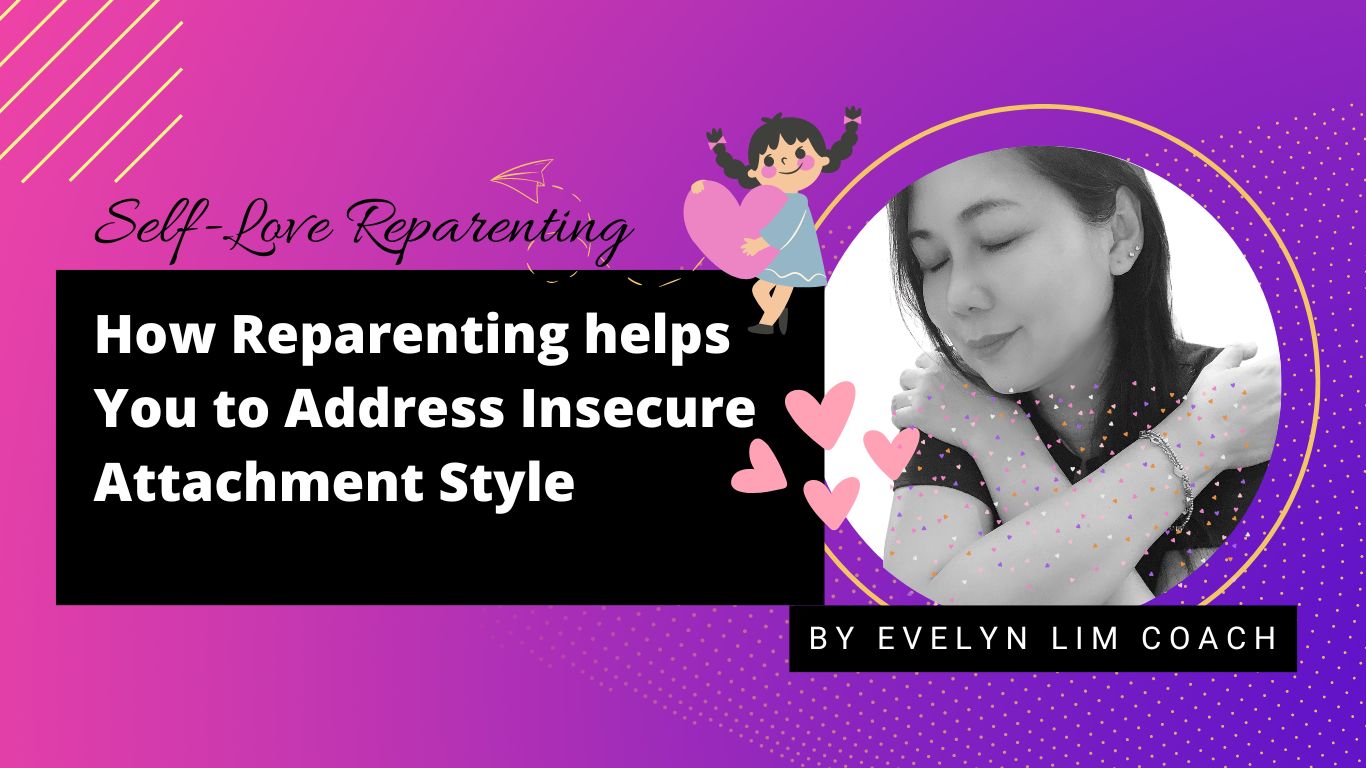
If you have an insecure attachment style, you can potentially benefit from doing some reparenting work. Insecure attachment affects those in their ability to form healthy relationships, make decisions and/or to cope emotionally. On the other hand, reparenting yourself helps you to heal your inner child, gain trust and maintain emotional stability. Thus, you enhance your ability to cultivate close relationships, boost confidence and enhance overall well-being.
Attachment styles first came from the work of John Bowlby, a psychologist. He first proposed Attachment theory in the 1950s and 1960s. Attachment theory helps us to find out more about the nurturing that was experienced during the initial years of our life and how it affects us today.
Bowlby’s view is that the bond between mother and child is most important of all. The first formative 18 months is very crucial in the child’s development. Where there is adequate nurturing, the child grows up to be a secure adult. Conversely, the absence of adequate nurturing leads to insecure attachment and the forming of invisible emotional wounds that often results in maladjustments in the emotional, social and cognitive development of the child.
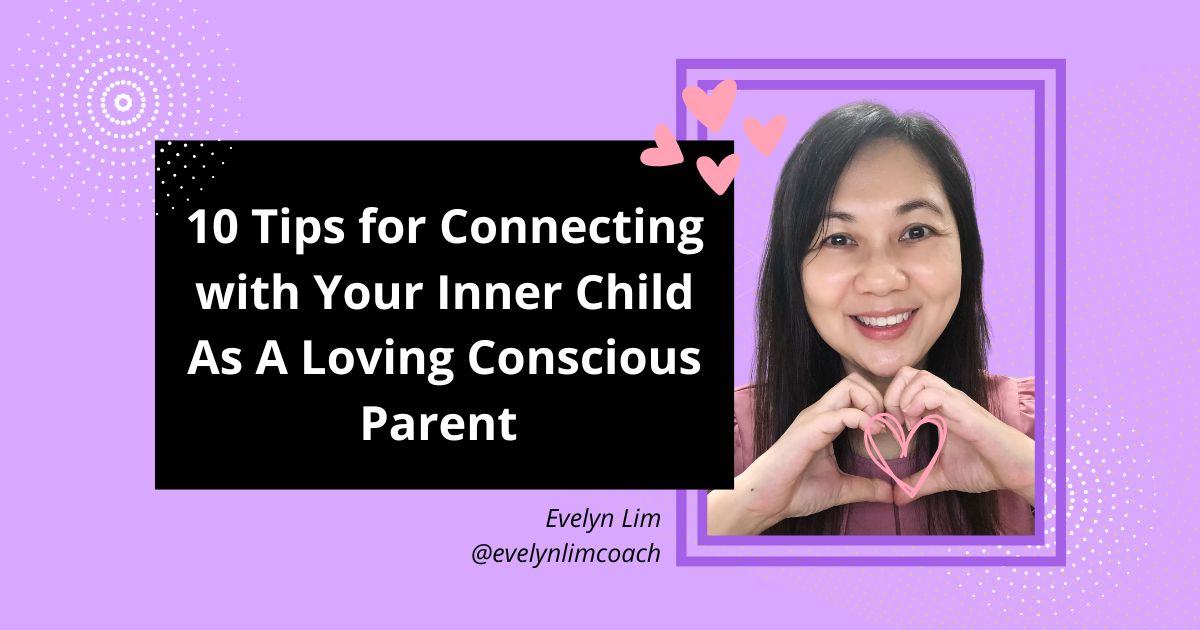
Do you often wish that you had received adequate love, guidance, support from your mum or dad when you were young?
It could be that you’re now realising that part of the challenging issues you have today are related to your childhood. Perhaps you have experienced emotional neglect in the past. You find yourself still longing for love and assurance even today.
This is not to blame any of your parents. After all, they parented you in the only way they knew how. They could have been brought up in the same or similar ways themselves. Yet, what remains is that your younger self or inner child still feels the need to have that love and acceptance.
Well, it is not too late. You can help yourself by addressing these needs in the now. Addressing unresolved needs helps you to build emotional resilience, strengthen self-confidence and esteem, and to undertake personal responsibility.
With all that you know now, with the higher consciousness that you are, you can offer parenting love, warmth and guidance to your inner child. Continue reading
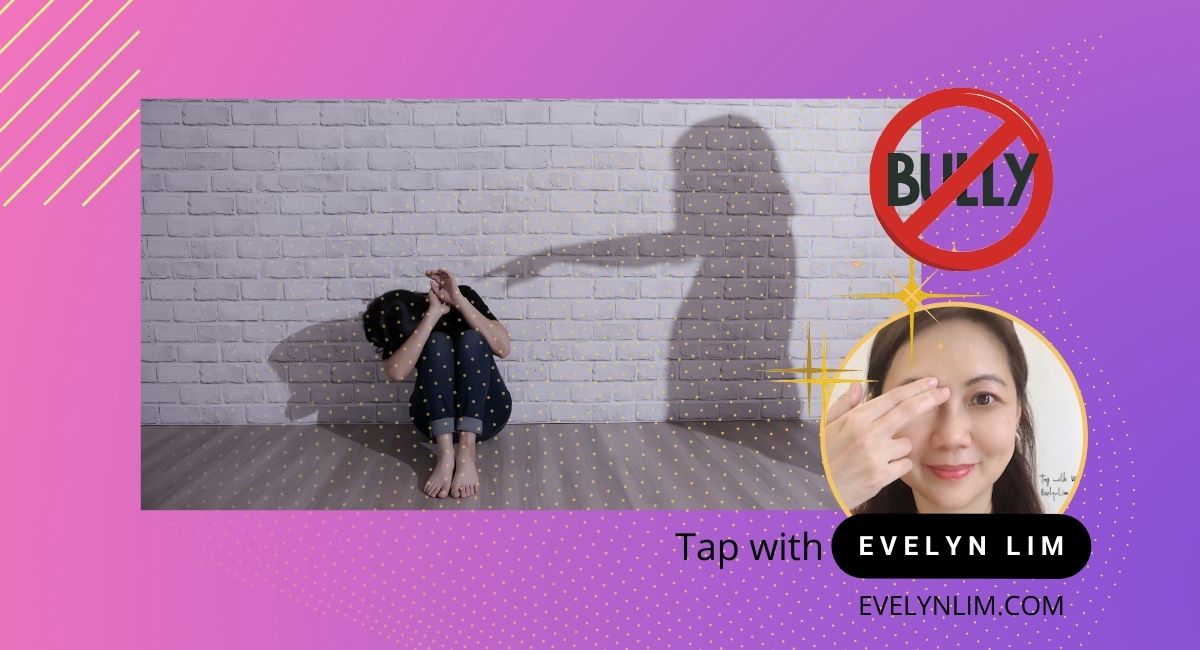
Emotional bullying is when a person tries to get what he or she wants by making another feel afraid, small and helpless.
It can happen in a children’s playground. Or it can happen in adult relationships. These days, emotional bullying can also take place online.
Emotional bullying brings about negative effects. If it is made repeatedly, the victim’s mental health can decline. Victims end up with depression, anxiety, shame, guilt and fear, and have difficulties showing up fully at work or in their business. Emotional wounds can create leaks in attracting money and abundance too.
Fortunately, it is possible for anyone to work on healing emotional wounds. In some situations, victims are not able to recognise that they have been bullied. Well, it is important for anyone to learn how to identify the signs so that you can tell if there has been bullying.
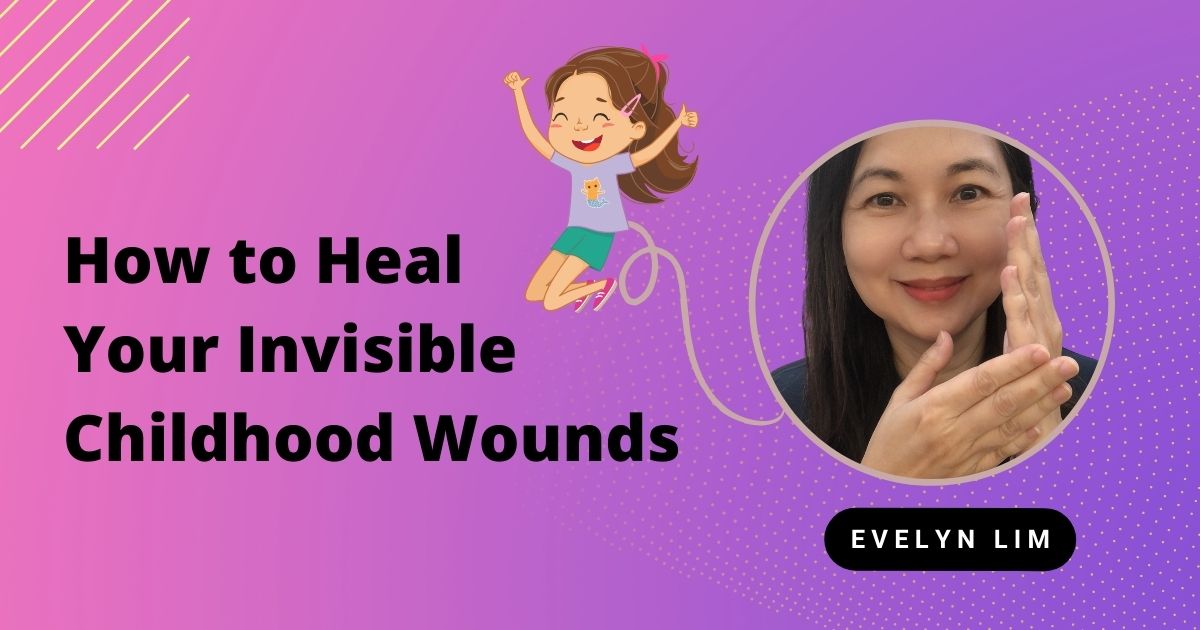
We may not realise at first that we have been carrying childhood wounds, so any talk about healing will be considered moot.
Childhood wounds are, after all, invisible to us.
And if we can’t see them through our naked eye, why does it matter whether we are carrying them or not?
Well, it may well explain contributing reasons behind our current day issues like
In other words, just because we can’t visually see our wounds does not mean that they don’t exist.
As I understand, according to Sigmund Freud, they are hidden in the deep recesses of our psyche, buried deep in the unconscious. We repress our pain, hurt and anger in these wounds. Because they are yet to be resolved, they can blindside us. It is why we are often in self-sabotage.
Thus, if we don’t heal our past wounds, they can bleed into everything that we do or encounter today.
“We have to listen to the child we once were, the child who still exists inside us. That child understands magic moments. We can stifle its cries, but we cannot silence its voice.The child we once were is still there.” Paul Coelho
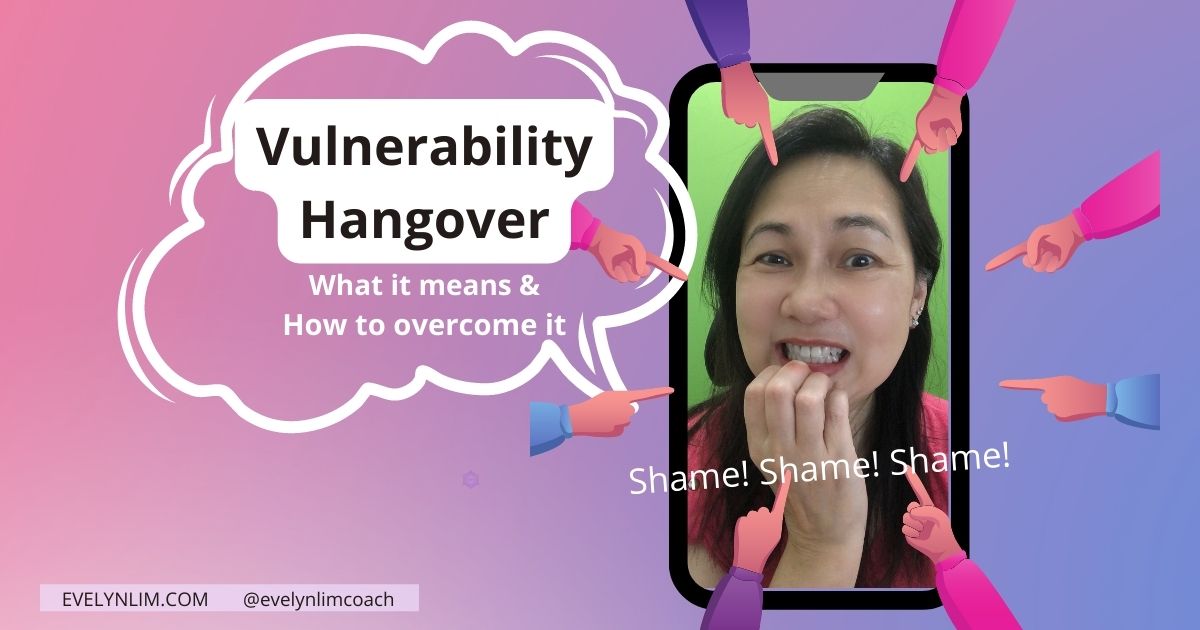
Vulnerability hangover is the regret, anxiety and shame that you feel after having exposed vulnerable parts about yourself to others.
Enough was enough, you had said. You decided that you were quite done with hiding. And so, even as your heart raced, you proceeded with boldly sharing something vulnerable about yourself. With a trembling voice, you went through your story. You shared it from deep within your heart.
The moment you let it out, you heaved a sigh of relief. The burden of keeping it all in was lifted. It was also when you gave yourself a pat on the back for your courage and congratulated yourself for being more authentic and daring greatly.
But wait a minute!!! As the dust settled, you began to compute what you’ve just done. Filled with regret, you started to shame yourself for such a stupid move. Feeling vulnerable about being vulnerable hit you in waves of nausea. You became sick to the stomach over the thought that others might ridicule you or reject you.
Well, in case you don’t know what had just taken place, there is one apt phrase that describes the phenomena: Vulnerability Hangover.
Continue reading